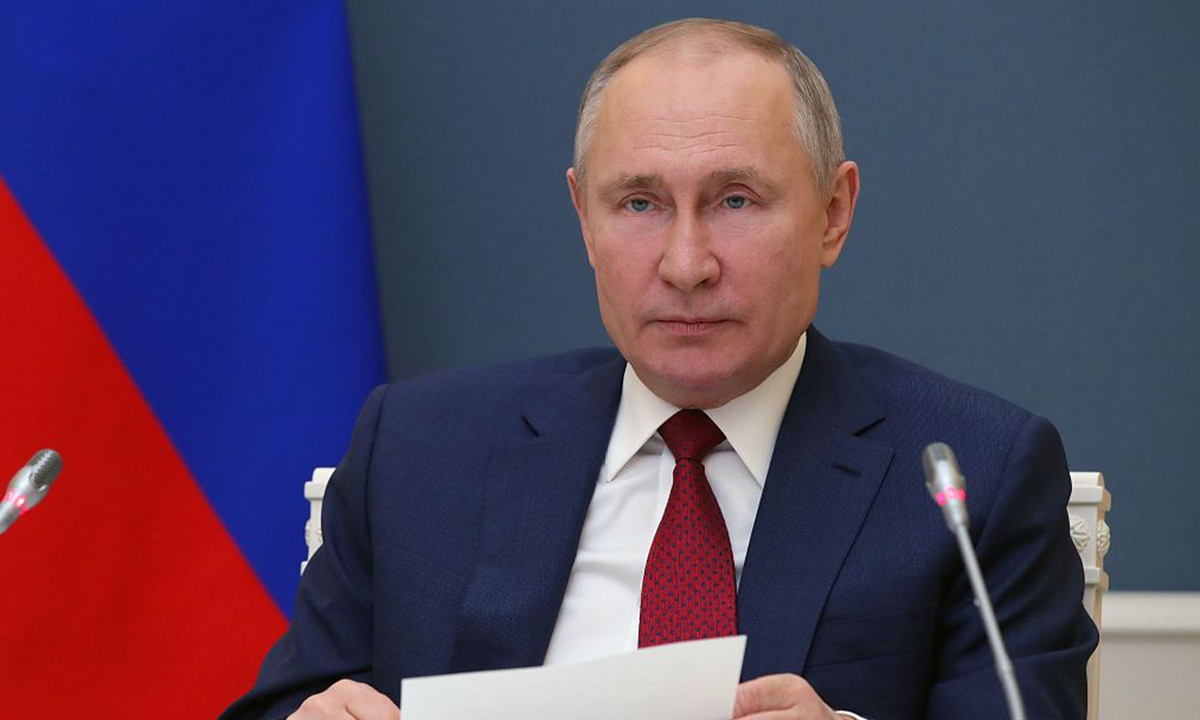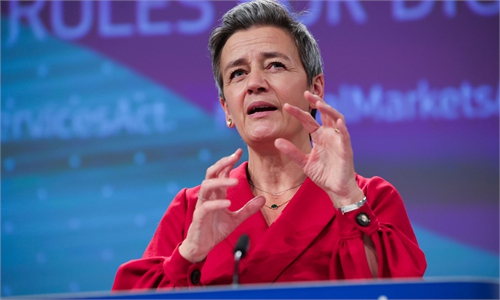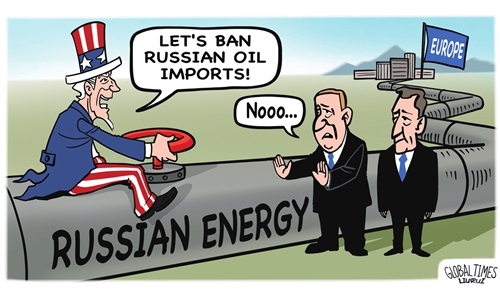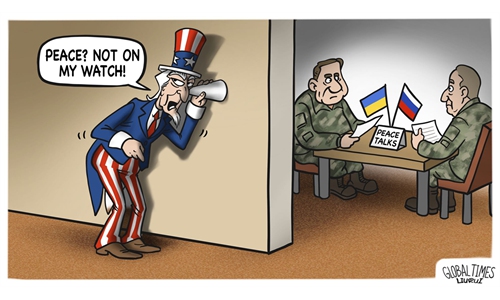
Russian President Vladimir Putin Photo:VCG
The special military operation of the Russian army in Ukraine makes us think about the socio-cultural aftermath of this event that may influence Russian foreign policy and its geopolitical role in the world.Some experts say Russia will inevitably turn into a more "Asian" country as Europe almost unanimously condemns the Russian military move. Europe sets itself apart from Russia, diminishing political, cultural and economic cooperation with Moscow. The US thinks Russia to be able to project its power in Europe only when Ukraine is part of Russia. If Ukraine splits off, Russia can't project its power in Europe because Ukraine blocks it. Ukraine and Russia are one and the same folk and earlier Ukraine was the core of the Russian civilization. Ukraine is the largest European ex-USSR republic. Being hostile toward Russia, it breaks Moscow's European politics, counterbalancing between the West and Russia.
There were some periods in Russian history when it was successfully pursuing its political goals in Europe without Ukraine. But now hampering Russia's politics in Europe, a hostile Ukraine makes Moscow turn into the East and become a more pro-Eastern power.
77 percent of the Russian population lives in the European part of Russia and 84 percent of Russians are of European origin. It means genetically, most Russians are kindred to the Europeans. From the cultural viewpoint, it's impossible to present the West-Russia confrontation as a civilizational one. The confrontation takes place in a geopolitical sphere where cultural and civilizational aspects are applied by the West as tools for strengthening its political power and deepening the rift.
But Russia will surely become more "Asian" in terms of geopolitical identity. The Eastern flank will be of more importance to Moscow, both in politics and economics. Russia will realize its Eurasian destiny in a more tangible manner, taking into account its dual civilizational character - both European and Asian (Euro-Asian or Euroasian). The Asian flank was neglected by the Kremlin for a long time. The Kremlin preferred the European theatre in the hope of getting sizeable political profits from Western partners. But the Kremlin failed because of the unwillingness of the West to see Russia as a part of the Western world. Since then, the term "Europe" itself was used by Washington and Brussels as an ideological construction to mark pro-Western countries as an opposition to Russia, which was labeled as a non-European state.
The eastern border of Europe is constantly moving eastwards, absorbing Russia's former allies under the pretext that they became democracies. Since 1989, NATO provided several waves of enlargement, stepping close to Russia's borders. Each new NATO member was said to become a European country.
It leaves Russia no way to compensate for the lack of friendship with the West except to activate contacts with the East. The traditional Russian partners in that part of the world are India and China. India has kept positive relations with Russia since the Soviet times. China is considered by Russia to be an important partner with similar geopolitical views. But the geopolitical identity of Russia differs from that of China.
Russian geopolitics sees China as a part of a maritime fringe alongside the seashores. Russia's geopolitical identity differs from that of China and is purely continental. These two identities are compatible provided that both countries have no major political discrepancies. Nowadays, Beijing and Moscow have no sharp points to argue over. It means Russian continentalism can be coupled with China, forming a powerful geopolitical mechanism, opposing the pressure of the Western maritime civilization. If separated from each other, Russia and China present two different but related political models and will get in trouble trying to neutralize the West's counteractions.
It implies the changes in Russian foreign policy. Moscow will certainly move eagerly eastwards. It gives new opportunities for Russian-Chinese cooperation in many fields, presumably in politics. In this sense, Russia really will become more "Asian."
Not so long ago Washington hoped to use Russia against China, which is seen by the American strategists as an inconvenient rimland power. Then there sounded some hopes to use China against continental Russia. Both hopes are forlorn now. Beijing and Moscow realize the meaning of the historical momentum. But it should be stated that notwithstanding its turn to Asia, Russia will stay a Euro-Asian power. Its traditions and culture will stay European while its politics and economics will become pro-Asian.
It gives Asian countries additional opportunities for developing stronger ties with Russia taking advantage of such position. Through Russia, Asia will have access to Europe and Russia will have access to Asia through China. Under such circumstances Russia and China are doomed to cooperation and working together over creation of a new and more righteous world system.
The author is a Ukrainian expert on Central and Eastern European countries. He lives in Russia now. opinion@globaltimes.com.cn



